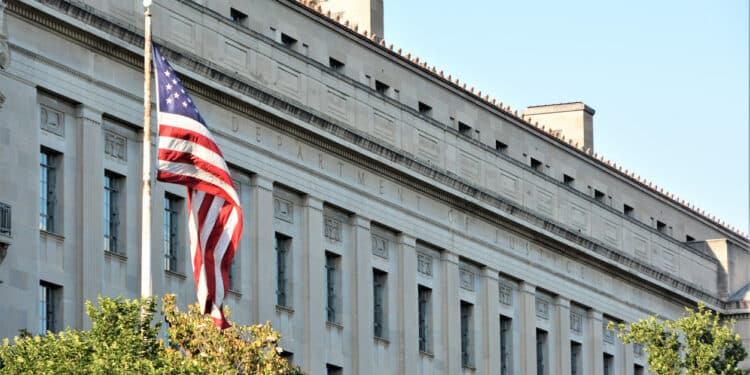On August 1, the U.S. Department of Justice (DOJ) released the long-awaited rules for its corporate whistleblower award program. The DOJ’s Corporate Whistleblower Awards Pilot Program will offer awards to individuals who blow the whistle on corporate crimes under the jurisdiction of the DOJ which are not covered by other whistleblower programs.
The DOJ announced a sprint to develop the program in March and whistleblower advocates noted that the whistleblower program had the potential to greatly bolster the DOJ’s efforts to combat fraud and corruption. However, they claimed that it will only be effective if it follows the model of proven whistleblower programs such as the Dodd-Frank programs at the SEC and CFTC.
According to a prominent whistleblower attorney, the DOJ failed to implement the best practices found in successful whistleblower programs and instead incorporated elements which have long been advocated by the Chamber of Commerce and Wall Street special interests.
“The DOJ missed the target,” says whistleblower attorney Stephen M. Kohn of Kohn, Kohn & Colapinto. “They failed to follow the proven best practices of the Dodd-Frank and False Claims Acts by not making awards mandatory to qualified whistleblowers who risk their jobs, careers and even lives in the public interest.”
In a new article for the National Law Review, Kohn outlines five areas where the DOJ failed to implement best practices in particular:
- Lack of Mandatory Awards: Under the DOJ program, awards are purely discretionary. “Not surprisingly, all discretionary whistleblower award laws have failed. Why should a whistleblower risk everything if the government has no obligation whatsoever to live up to its end of the bargain?” Kohn writes.
- Limits on Award Amounts: The DOJ program includes a cap on award sizes where a whistleblower would not be entitled to any compensation based on recoveries that topped $500 million and would be subjected to a 5% cap on recoveries above $100 million. “This was the most significant victory Wall Street, and the Chamber of Commerce obtained, and it sets a terrible precedent,” states Kohn.
- Exclusion of Culpable Whistleblowers: The DOJ’s rules bar any individual who “meaningfully participated” in the fraud from coverage under the program. According to Kohn, “this would cover the overwhelming majority of the best sources of information, and would give comfort to corporate insiders knowing that their co-conspirators could not obtain an award if they turned them in.”
- Lack of Complete Confidentiality Protections: The DOJ’s rules allow the agency “to waive confidentiality and anonymity at-will, unbound by the legal restraints contained in Dodd-Frank and the AML whistleblower laws,” Kohn explains.
- Encouragement of Internal Reporting: The DOJ program strongly encourages individuals to blow the whistle internally, despite the dangers and lack of protections in such cases. “It is extremely troubling that the DOJ would encourage whistleblowers to engage in behaviors that are not protected under federal law, will result in many of them losing the ability to report confidentially, and that the empirical evidence demonstrates is the most dangerous method for an employee to report concerns,” writes Kohn.
During the DOJ’s sprint to develop the program, Kohn and other whistleblower advocates met with the DOJ and provided detailed comments calling on the agency to model the program off the highly successful Dodd-Frank programs.
“The Justice Department adopted proposals long sought after by Wall Street special interests and the Chamber of Commerce and created a program that delivered on the corporate wish-list for undercutting the effectiveness of whistleblower award programs,” Kohn wrote in conclusion. “By making the program discretionary, capping the amount of awards, blocking the best informants from coverage, and placing a major caveat on the right to file anonymous claims, the Justice Department’s program runs counter to the significant amount of empirical evidence concerning the specific policies and procedures necessary to operate a successful program. Worse still, it creates a dangerous precedent for future whistleblower laws.”


